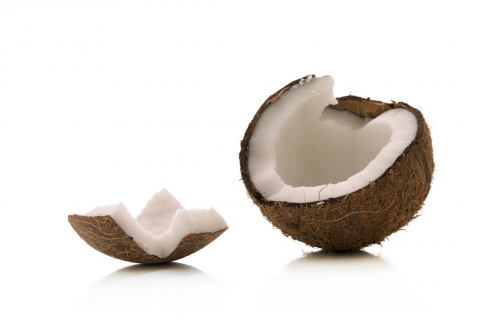 Once you have weight reduction surgery, you need to consume a certain amount of nutrients to stay on the path of being healthy. One of the nutrients that need to be consumed daily is protein. Now that you’ve gone through bariatric surgery, it’s important to focus on a new dietary plan. It can be hard to adjust, but your nutritionist and bariatric surgeon probably told you why there are dietary restrictions and what foods need to be consumed. To help you stay on track, there are many foods that you can try, but there are also protein powder shakes to give you the nutrients you need in smaller portions. Portion control can be hard to maintain, but by exploring the wonderful world of bariatric protein powder you can hit your nutrient goals everyday, stay full, and continue on your path of being healthy and losing weight.
Once you have weight reduction surgery, you need to consume a certain amount of nutrients to stay on the path of being healthy. One of the nutrients that need to be consumed daily is protein. Now that you’ve gone through bariatric surgery, it’s important to focus on a new dietary plan. It can be hard to adjust, but your nutritionist and bariatric surgeon probably told you why there are dietary restrictions and what foods need to be consumed. To help you stay on track, there are many foods that you can try, but there are also protein powder shakes to give you the nutrients you need in smaller portions. Portion control can be hard to maintain, but by exploring the wonderful world of bariatric protein powder you can hit your nutrient goals everyday, stay full, and continue on your path of being healthy and losing weight.
What is Bariatric Protein Powder?
Not all protein powders are good for bariatric patients, which is why there are specific protein powders people who have gone through bariatric surgery prefer to consume. Some protein powders have too much sugar – something that should be avoided. It’s important to always read nutrition labels to be sure you know how much you’re drinking. Bariatric protein powder is geared toward post-op patients who need to meet their nutrient requirements. Ideally, look for protein powders that have at minimum 20 grams of good quality protein and fewer than 10 grams of sugar. Remember to keep it simple; it’s okay to add some fruits, and other ingredients, but be aware of your intake, and don’t overdo it.
 Why Use Bariatric Protein Powder?
Why Use Bariatric Protein Powder?
Because your stomach size is reduced, you are only able to consume a certain amount of food. You want to maximize your intake with the best quality ingredients and wholesome foods. Protein shakes are easy and filling: all you have to do is make the shake. Make one in the morning, and then take it to work with you, or drink it after a long day when you aren’t up for cooking dinner. However you look at it, bariatric protein powders are geared for post-op patients and work well to help you meet your protein requirements.
There are many protein powders out there, so you’ll be able to find you what you like. We offer a few of our favorites in the office, and our nutritionist Megan Wolf can walk you through the benefits of each.
Do you live in the New York area and are interested in weight loss or bariatric surgery? At Weight Zen, we offer a few weight reduction surgeries to help you get your life back. To make an appointment or to learn more, call [uxi_button link=”2122032146″ new_window=”0″ tel=”1″ class=”button-block-mobile button-32″ padding_x=”” padding_y=”” text=”(866) 429-5961″ text_size=”14″ text_size_mobile=”” text_font=”header-font” sub_text=”” sub_text_size=”12″ sub_text_size_mobile=”” sub_text_font=”header-font” icon=”” icon_size=”12″ icon_size_mobile=”” icon_align=””].

 Why Use Bariatric Protein Powder?
Why Use Bariatric Protein Powder?
 Skyr
Skyr Here at Weight Zen, Dr. Rosen has helped hundreds of patients who suffer from obesity and weight control issues achieve a healthier life. We receive many calls from potential weight loss surgery candidates who are simply unsure about whether they are a candidate for bariatric surgery in New York. Today, we’re going to take a look at some of the basic standards of the ideal bariatric surgery candidate.
Here at Weight Zen, Dr. Rosen has helped hundreds of patients who suffer from obesity and weight control issues achieve a healthier life. We receive many calls from potential weight loss surgery candidates who are simply unsure about whether they are a candidate for bariatric surgery in New York. Today, we’re going to take a look at some of the basic standards of the ideal bariatric surgery candidate. Though the number of bariatric surgeries performed in the United States grew in in recent years to almost 180,000 procedures a year, the number of qualifying patients that actually undergo these life-changing surgeries remains at less than one percent, according to the American Society for Metabolic and Bariatric Surgery (ASMBS). With weight loss surgeries proving themselves to be viable, delivering consistently improved long-term results, they remain vastly under-utilized. With a large portion of our population experiencing the symptoms of obesity, why are so few of us choosing to undergo this type of treatment for obesity? Why would so few patients avoid the prospect of surgery when it means a healthier future? The misconceptions that continue to plague the procedures could reveal that answer.
Though the number of bariatric surgeries performed in the United States grew in in recent years to almost 180,000 procedures a year, the number of qualifying patients that actually undergo these life-changing surgeries remains at less than one percent, according to the American Society for Metabolic and Bariatric Surgery (ASMBS). With weight loss surgeries proving themselves to be viable, delivering consistently improved long-term results, they remain vastly under-utilized. With a large portion of our population experiencing the symptoms of obesity, why are so few of us choosing to undergo this type of treatment for obesity? Why would so few patients avoid the prospect of surgery when it means a healthier future? The misconceptions that continue to plague the procedures could reveal that answer. Food is one of the best parts of life. There are so many options no matter what you like. After your surgery, your bariatric surgeon and nutritionist probably told you what you could and could not eat. You likely went over a plan for food, but what about when you are finally back to eating a “normal” diet? Below are a few diets you may not have heard of, but may be just the diet you need in your life. Even if you haven’t gone through bariatric surgery, consider these three diets.
Food is one of the best parts of life. There are so many options no matter what you like. After your surgery, your bariatric surgeon and nutritionist probably told you what you could and could not eat. You likely went over a plan for food, but what about when you are finally back to eating a “normal” diet? Below are a few diets you may not have heard of, but may be just the diet you need in your life. Even if you haven’t gone through bariatric surgery, consider these three diets. You may or may not have heard about the Mediterranean Diet. This diet has recently become more and more popular. After you’ve had your bariatric surgery at Weight Zen, located in the heart of New York City, you probably talked to your bariatric surgeon and nutritionist about what foods you can consume and what you can’t. As you acclimate back to eating a normal diet, or if you want to try dieting before you turn to weight loss surgery, you may consider this diet.
You may or may not have heard about the Mediterranean Diet. This diet has recently become more and more popular. After you’ve had your bariatric surgery at Weight Zen, located in the heart of New York City, you probably talked to your bariatric surgeon and nutritionist about what foods you can consume and what you can’t. As you acclimate back to eating a normal diet, or if you want to try dieting before you turn to weight loss surgery, you may consider this diet. Why Should I Consider This?
Why Should I Consider This?
